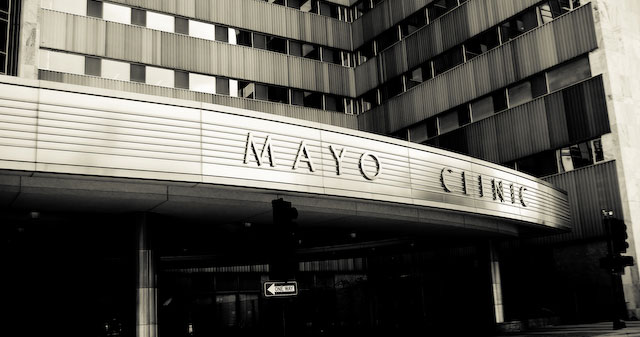
The Mayo Clinic has an international reputation for being among the best nonprofit medical centers in the world. When its CEO, John Noseworthy, announced to employees that Mayo would begin giving preference to privately insured patients over Medicare and Medicaid patients “if they seek care at the same time and have comparable conditions,” it was big news.
Mayo will still accept all patients regardless of payment source, following its own mission and tradition as well as applicable federal law. However, when space and resources are tight at Mayo facilities, patients with private insurance, or who are wealthy enough to self-insure, will receive preference. Roughly half of Mayo’s patients are covered by Medicare and Medicaid; there will be times when they will have to wait, or wait longer, for tests and surgeries.
The problem for Mayo, as for all U.S. hospitals, is that overall revenue margins are shrinking due to a variety of factors. Among these is that government-paid health insurance like Medicare and Medicaid reimburse hospitals at a lower rate than do private insurance companies. The Affordable Care Act (ACA) has added millions of new patients to the Medicaid rolls, and Medicaid only pays between 50 percent and 85 percent of the cost to treat a patient. This stress on hospital finances is combined with increasing percentages of Medicare eligible patients as the “baby boom” generation enters its 60s and 70s.
Sign up for our free newsletters
Subscribe to NPQ's newsletters to have our top stories delivered directly to your inbox.
By signing up, you agree to our privacy policy and terms of use, and to receive messages from NPQ and our partners.
“We’re asking … if the patient has commercial insurance, or they’re Medicaid or Medicare patients and they’re equal, that we prioritize the commercial insured patients enough so … we can be financially strong at the end of the year to continue to advance, advance our mission,” Noseworthy said.
Mayo is still profitable, with net revenue of $526 million on more than $10 billion in total revenue, including $277 million in philanthropic gifts. Mayo serves more than one million patients each year from all 50 states and 140 countries, according to its web site. However, the “payer mix” of patients has changed, with a 3.7 percent surge in Medicaid patients between 2012 and 2016 contributing to financial losses from Medicaid-paid services climbing from $321 million in 2012 to $548 million in 2016.
Prioritizing patient care based on ability to pay, or pay at an acceptable level, is a very troubling development. Mayo is regarded as a medical leader in so many ways that Noseworthy’s public acknowledgement that private pay patients will sometimes be served before others may be seen as a signal to other hospitals that it’s OK to do the same thing. This will only increase the divide between health care services to those who can pay the going rate and those who cannot, even with help. – Michael Wyland













